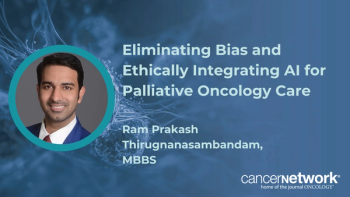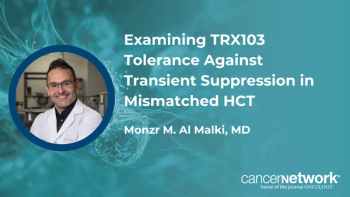
Daratumumab May Benefit Patients With Refractory Multiple Myeloma
In a heavily pretreated multiple myeloma (MM) population, daratumumab monotherapy at 16 mg/kg showed meaningful, durable, single-agent activity, with deep responses and a favorable safety profile, according to a new phase II study.
In a heavily pretreated multiple myeloma (MM) population, daratumumab monotherapy at 16 mg/kg showed meaningful, durable, single-agent activity, with deep responses and a favorable safety profile, according to a new phase II study presented at the 2015 American Society of Clinical Oncology (ASCO) Annual Meeting, held May 29-June 2, 2015 in Chicago.1
Sagar Lonial, MD, who is with the Winship Cancer Institute at Emory University School of Medicine in Atlanta, and colleagues conducted a two-part, open-label, international, multicenter study. In part one, researchers determined the most effective dose in 34 patients. In part two, 90 additional patients were enrolled in the 16 mg/kg dosing group. The primary endpoint was overall response rate (ORR).
Daratumumab is a human anti-CD38 IgG1κ mAb. It has single-agent activity and it was tested in MM patients with ≥ 3 prior lines of therapy, including a proteasome inhibitor (PI) and an immunomodulatory agent (IMiD), or double refractory to a PI and ImiD. The researchers reported on 106 patients who received 16 mg/kg of daratumumab. The cohort had a median time since diagnosis of 4.8 years. These patients had previously not responded to multiple therapies (96%; last PI and IMiD, 95%; pomalidomide, 63%: carfilzomib, 48%; alkylating agents, 78%).
The researchers found that the most common adverse events (≥ 20%) were fatigue (39.6%), anemia (33.0%), nausea (29.2%), thrombocytopenia (25.5%), back pain (22.6%), neutropenia (22.6%), and cough (20.8%). The researchers reported that infusion-related reactions (IRR, 42.5%) were mainly grade 1/2 during the first infusion, and no patients withdrew from the trial due to IRRs.
The investigators were pleased to see an ORR of 29.2%, with three complete responders and a high percentage of partial responders. The median duration of response was 7.4 months and the ORR was consistent across clinically relevant subgroups. The study demonstrated a median time to progression was 3.7 months. At the time of the presentation (June 1, 2015), the median overall survival (OS) had not been reached; however, the estimated 1-year OS rate was 65%.
References:
- Lonial S, Weiss BM, Usmani SZ, et al. (2015).
Phase II study of daratumumab (DARA) monotherapy in patients with ≥ 3 lines of prior therapy or double refractory multiple myeloma (MM): 54767414MMY2002 (Sirius). ASCO University.
Newsletter
Stay up to date on recent advances in the multidisciplinary approach to cancer.
Related Content




Examining TRX103 Tolerance Against Transient Suppression in Mismatched HCT









































